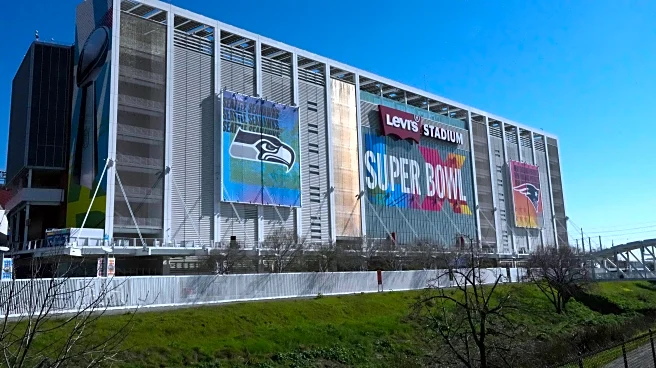What's Happening?
Wisconsin Badgers head coach Luke Fickell will continue to lead the team into the 2026 season despite a challenging 2-6 record. Athletic Director Chris McIntosh confirmed the decision, highlighting a significant financial investment in the football program.
Fickell, who has faced criticism due to the team's performance, remains under contract through 2031, with a $25 million buyout clause. McIntosh and Chancellor Jennifer Mnookin are committed to elevating investment in infrastructure and staff, focusing on player retention and recruitment in the NIL era. The decision reflects confidence in Fickell's ability to turn the program around.
Why It's Important?
The decision to retain Fickell is crucial for Wisconsin's football program, which has a strong tradition in the Big Ten. The commitment to invest in the program reflects the university's determination to restore its football team's prominence. This move could impact recruitment and player retention, crucial in the NIL era where financial incentives play a significant role. The decision also highlights the financial implications of firing Fickell, making retention a more viable option. The broader impact on the university and state underscores the importance of a successful football program.
What's Next?
Wisconsin faces tough upcoming games against ranked opponents Washington and Indiana, which will test the team's resilience and Fickell's leadership. The university's planned investments in infrastructure and staff aim to bolster the program's competitiveness. The focus will be on improving player recruitment and retention strategies, leveraging NIL opportunities. The team's performance in the remaining games will be crucial in shaping the future direction of the program and assessing the effectiveness of the investments.
Beyond the Headlines
The decision to retain Fickell despite poor performance raises questions about the balance between financial considerations and athletic success. The significant buyout clause in Fickell's contract illustrates the complexities of coaching contracts in college sports. Additionally, the emphasis on NIL and revenue-sharing highlights the evolving landscape of college athletics, where financial incentives are increasingly influencing player decisions and program strategies.















